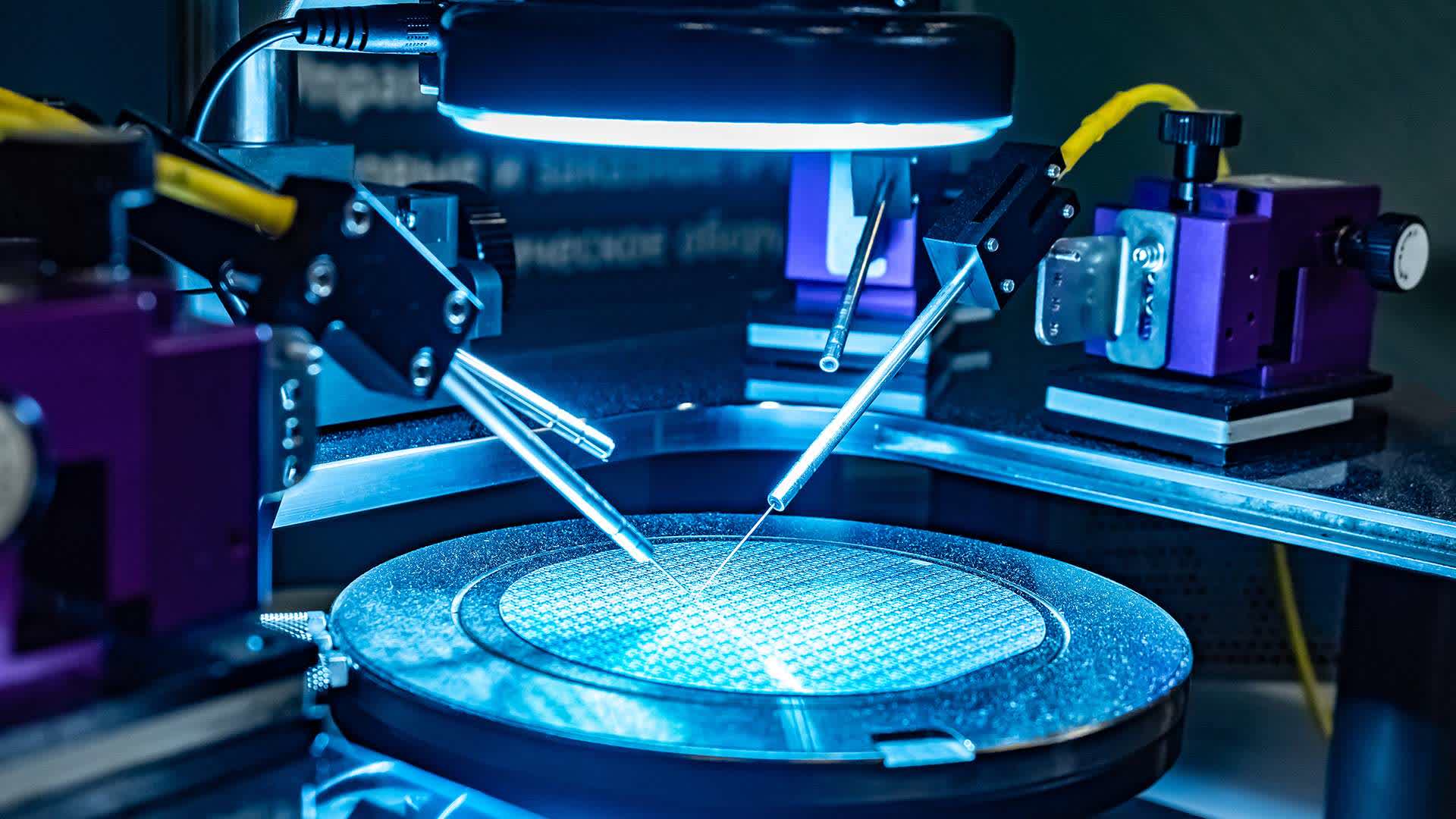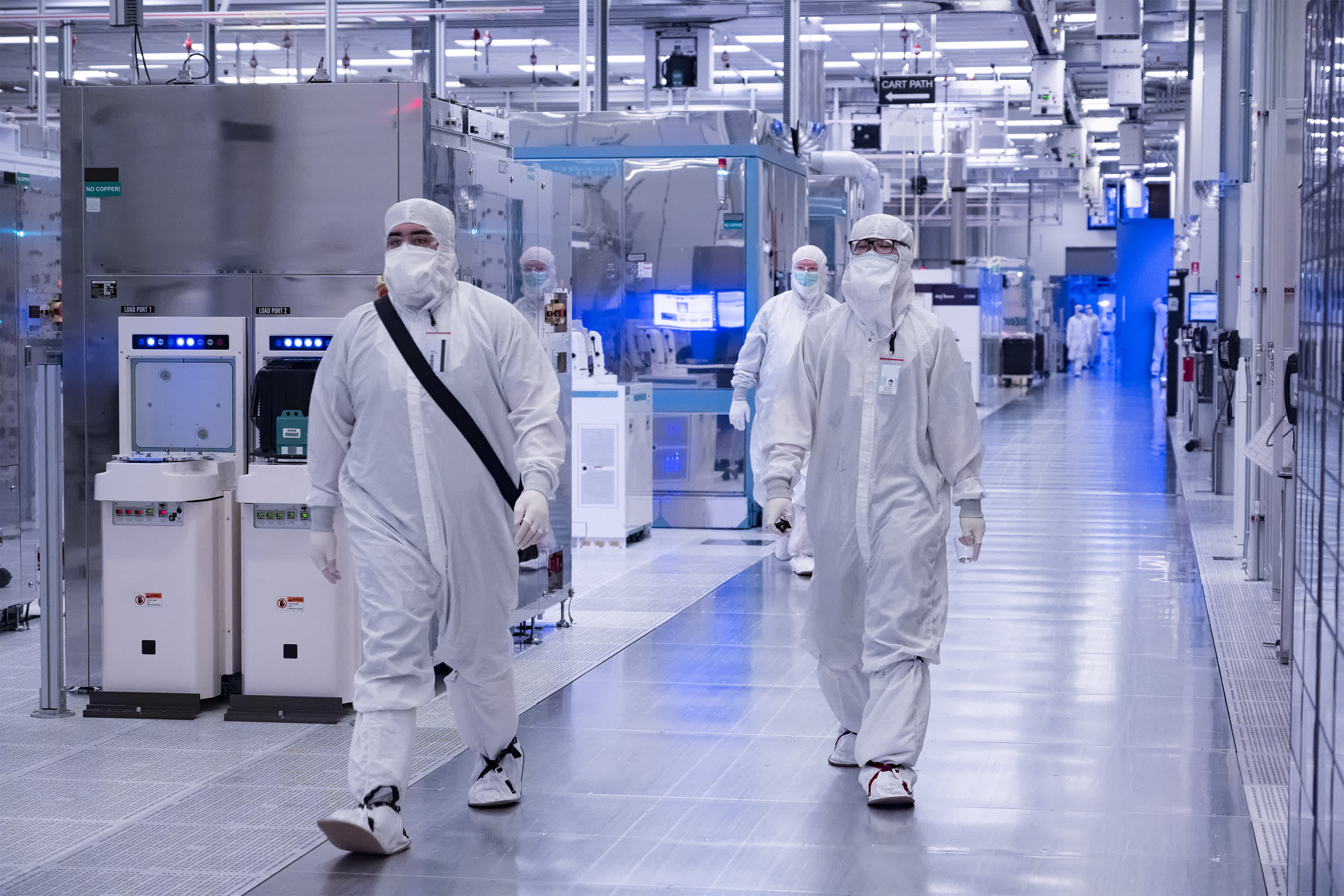Who will be Intel's to start with foundry buyer?
 [ad_1]
[ad_1]
The massive photograph: Intel has ambitions to generate a foundry organization by producing chips for other corporations. This is an crucial strategic initiative that the business will require to recoup the massive investment decision it is now building in fabs all over the world.
Most analysts concur that this proposition is a non-starter until finally Intel can capture up with its production process. And rightly so, with no that, Intel Foundry Companies (IFS) would lack severe competitive differentiation (certainly, packaging, but that is not enough). And we have also cautioned that the organization lacks customer company muscle mass following an total historical past of the fabs team jogging the show.
Editor's Notice:
Guest author Jonathan Goldberg is the founder of D2D Advisory, a multi-functional consulting company. Jonathan has formulated development methods and alliances for firms in the mobile, networking, gaming, and software program industries.
But outside of that there are even additional worries.
When we talk about semis fabrication, we tend to deal with the different foundries nodes as fungible, as if a buyer could conveniently trade Samsung for Intel for TSMC. This is not correct. In fact, just about every fab has a distinctive way of doing production. Intel's process was intended to make CPUs, and those processes are not the identical as what is needed for other kinds of chips. For instance, blended sign chips which need to have to process digital versions of analog alerts (like mobile cell phone signals) whilst also accomplishing pure digital logic, call for a very different established of steps for manufacture -- unique machines, calibrated in different ways, in a unique buy. To place it politely, Intel does not have a great keep track of file for creating their own mixed sign sections.
And then there are the applications. A major aspect of the foundry consumer practical experience is the software package resources utilized to cope with communications between the fabless purchaser and the foundry. This is not as easy as emailing a pair data files more than. The big foundries have all invested seriously in integrating the resources they use to tackle output with the software package equipment made use of by their consumers.
This is a big aspect of the competitive stranglehold that the EDA suppliers like Cadence and Synopsys keep in excess of the sector. To be obvious, Intel has its personal established of applications to manage creation of their personal chips, but these are to a stunning degree proprietary to Intel. From what we hear, even Intel employees do not adore the encounter. Will IFS be expecting clients to discover these tools? Far more probable, Intel is likely to need to have to commit closely in computer software to establish a full new established of instruments that customers will be at ease with.

All of this prospects to the concern, if Intel can get its manufacturing back on observe (a major if), what client is going to want to swap to Intel? Even if Intel can overtake TSMC's method by 2025 as they assert (or is it 2026?), it is going to acquire fabless shoppers a substantial time period of time (measured in a long time) in advance of they are going to really feel relaxed sending serious generation orders to IFS.
The sector is littered with horror tales about companies getting stranded for the reason that their foundry's approach does not go to approach.
It is critical to continue to keep in mind that just about every time a enterprise sends a chip to the foundry for production that corporation is having a threat. There is a cause they simply call them "Chance Commences." For recognized foundries, that risk is measured in phrases of generate, the proportion of chips created on just about every wafer. But for a new approach, enable by itself a new foundry, there is serious risk that the approach could not function. The market is littered with horror tales about organizations acquiring stranded since their foundry's process does not go to approach.
Provided all this, it would seem pretty unlikely that any of the largest chip corporations are heading to be a in a massive hurry to sign up for IFS. Would Apple possibility an Iphone cycle failing because its foundry was not all set? Just shifting from TSMC 5nm to TSMC 3nm is frightening ample. If Intel can deal with its system (once again, a huge if), the huge prospects will definitely choose a major glimpse at IFS, but that severe appear will entail yrs of conferences and deep diligence.
That becoming reported, there is a single team of consumers who may be pretty intrigued in rolling the dice on IFS -- designers of RISC V chips. Nowadays, these organizations you should not have a large amount of excellent alternatives. They can get access to TSMC, but they are usually pretty small and so do not get "A Workforce" company or pricing.
RISC V chips also have the advantage of getting a rather greenfield prospect, they are so new that no 1 has deep knowledge in great-tuning foundry processes for their manufacture. Keep in mind back again in February when Intel announced they were being earning major RISC V investments? At the time, we famous that Intel was not going to change its CPUs from x86 to RISC V, but they have been fascinated in the broader ecosystem.
The financial investment they talked about was mostly about developing the equipment and processes essential to bring in RISC V fabless designers. It is worth pointing out that Intel's RISC V workforce appears to be mostly sitting down inside of the IFS business.
This is not a terrible tactic. Underneath regular situations we would be complimenting Intel's knowledge. RISC V firms could very easily be a stepping stone for IFS, a complete bunch of fairly captive guinea pigs shoppers on whom they can experiment hone their purchaser provider capabilities. The difficulties is that all of this is nonetheless extremely much away. We recently commented to a good friend that we did not hope to see IFS certainly operational until eventually 2030, and he responded "Oh, so you are an optimist."
Intel is on the correct path, it is just a really lengthy street.
Editor's take note: Soon right after this column was penned, Intel Foundry Services president Randhir Thakur told EE Occasions that the U.S. Section of Protection is IFS' "# 1 consumer" as part of the DoD's SHIP program. There may possibly be some noticeable political implications in selecting Intel, but that continue to usually means Intel has still to execute and proof itself as a foundry having on client's jobs.
[ad_2] https://g3box.org/news/tech/who-will-be-intels-to-start-with-foundry-buyer/?feed_id=10077&_unique_id=6339f9f1d3c8a


0 comments:
Post a Comment